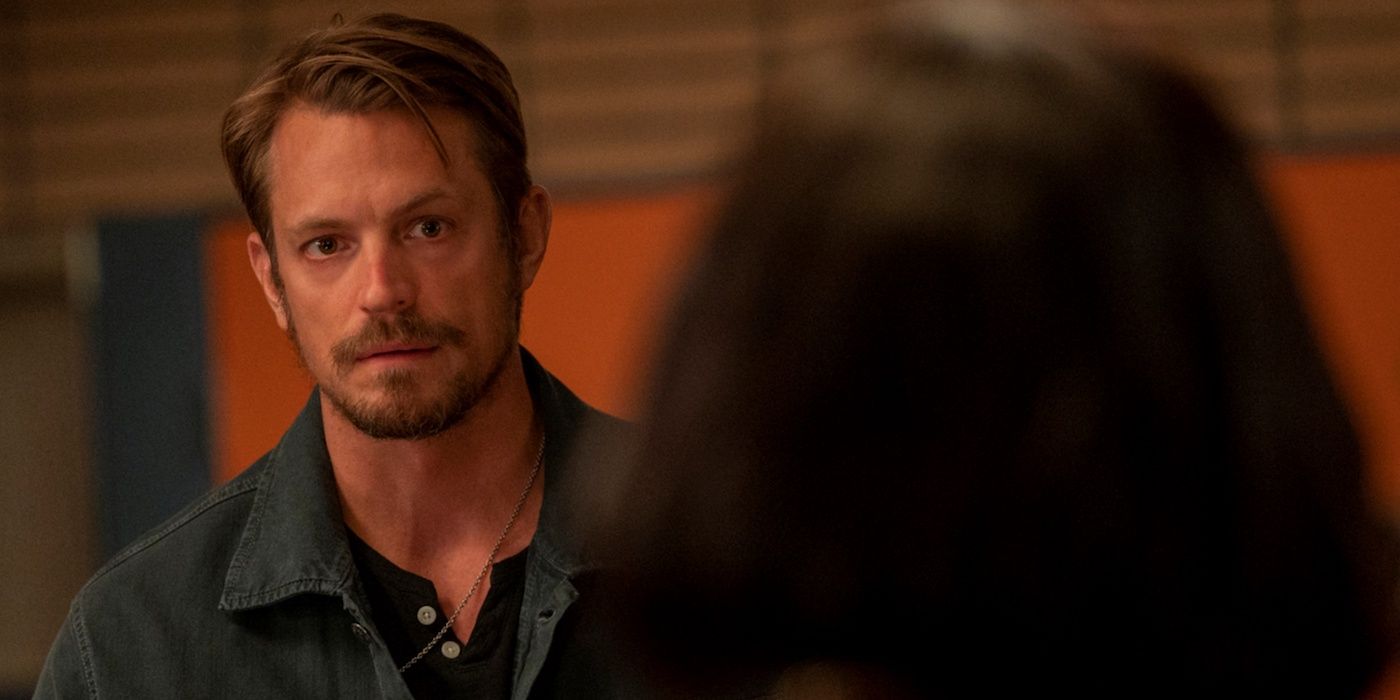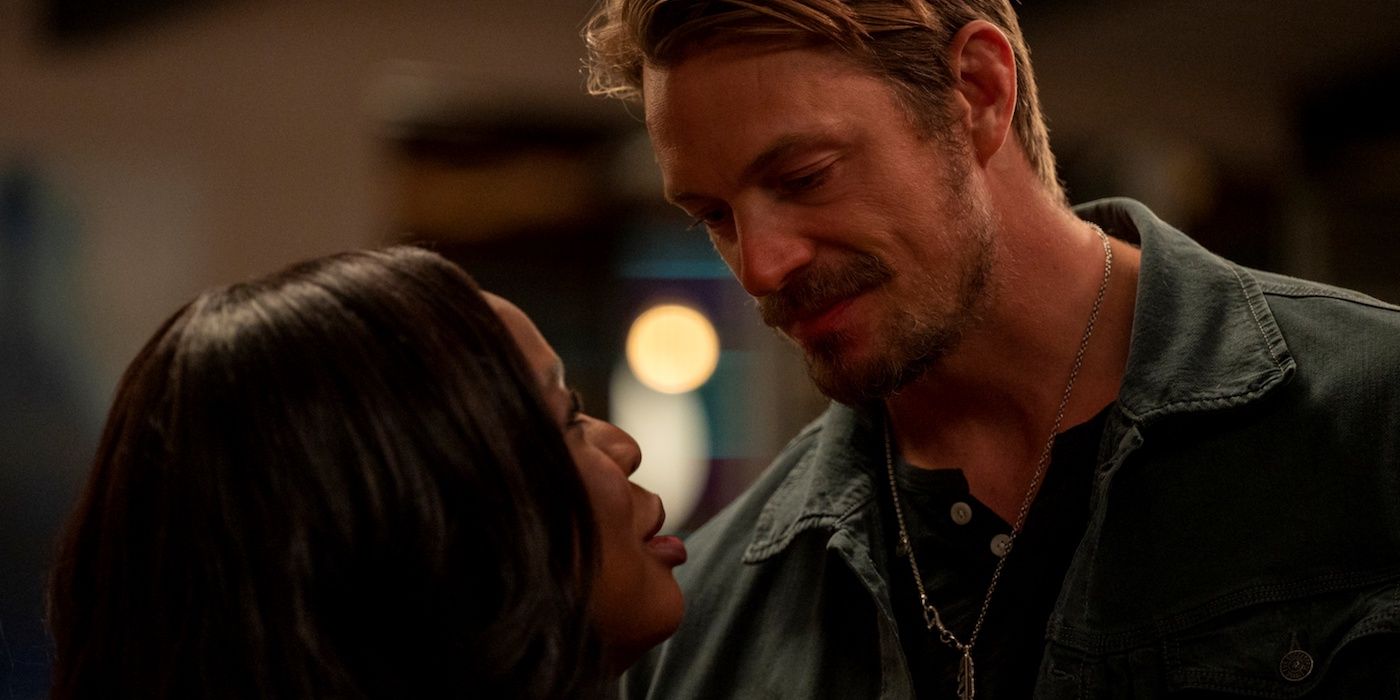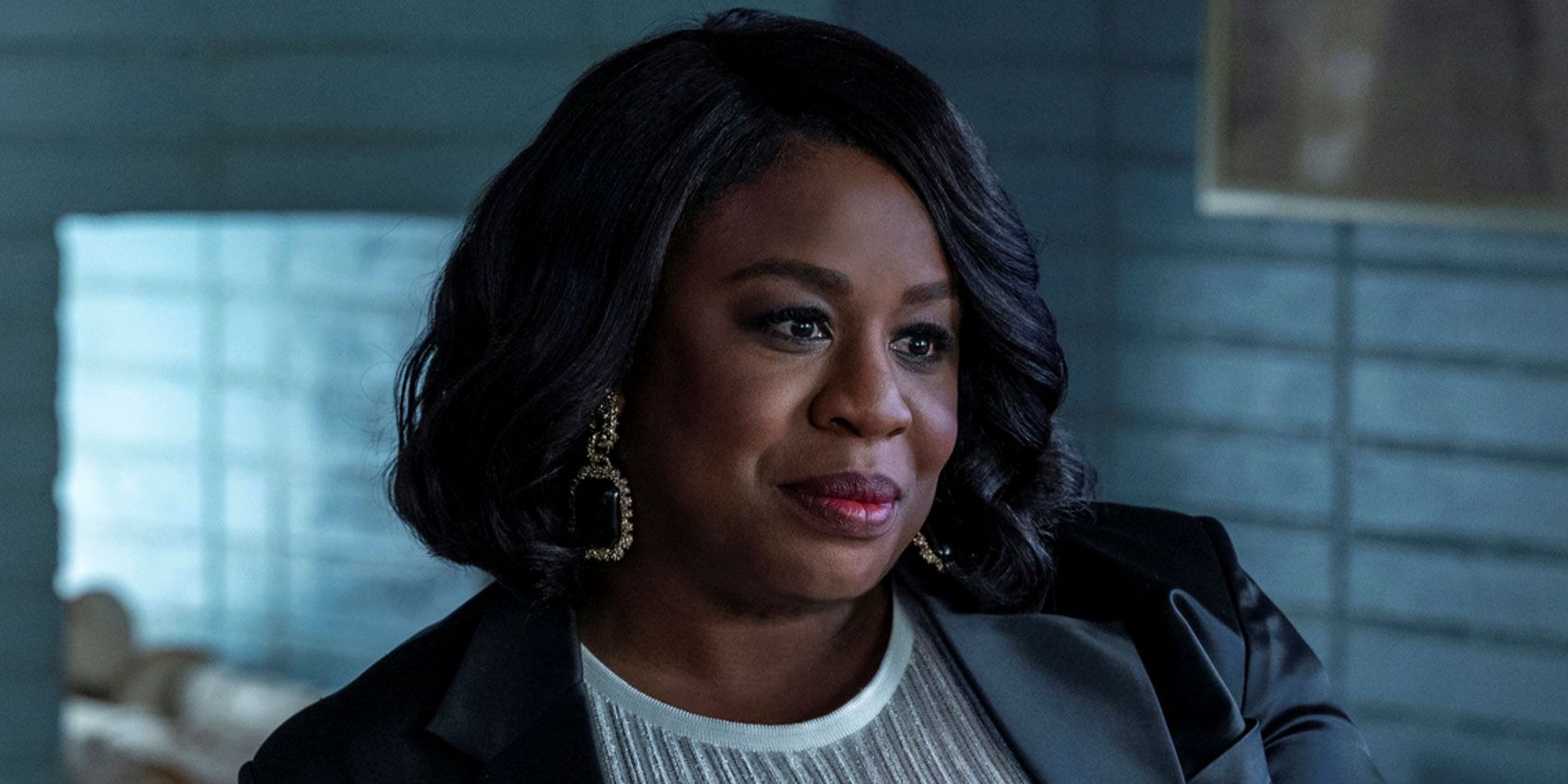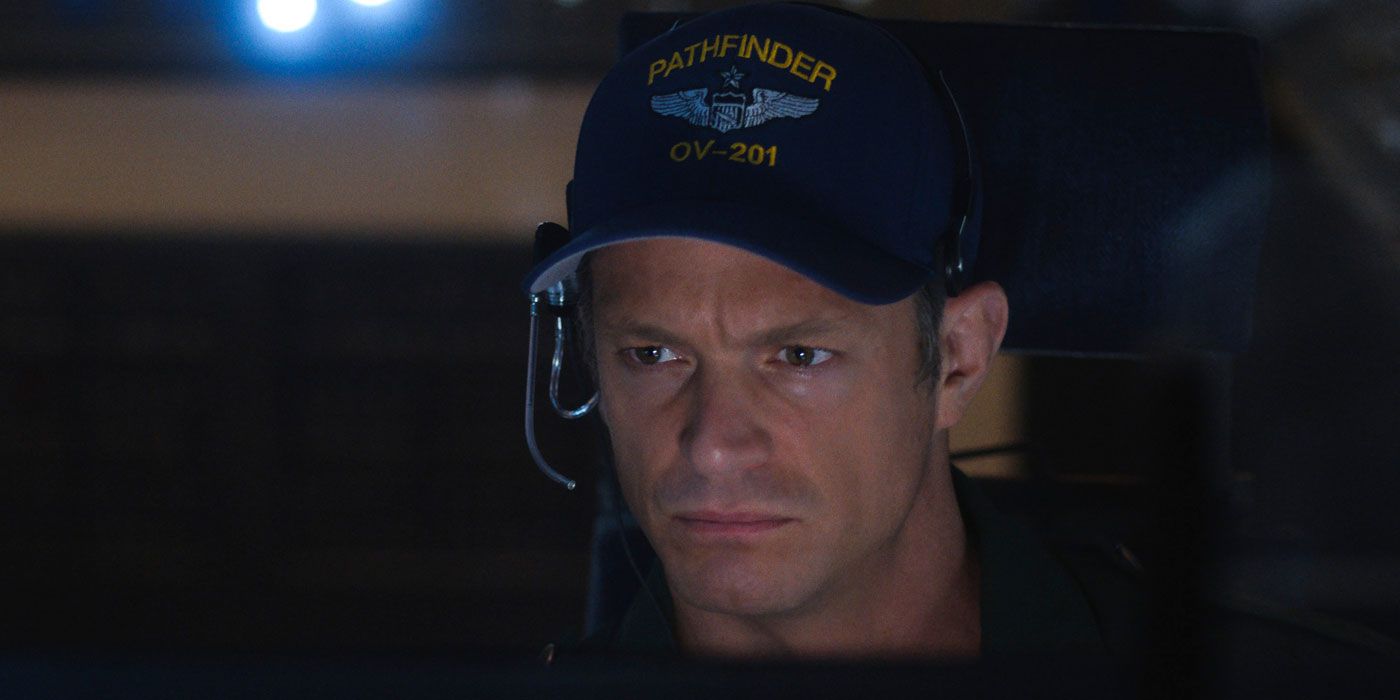The latest season of the HBO series In Treatment follows Dr. Brooke Taylor (Uzo Aduba), a therapist in Los Angeles who currently has a diverse trio of patients — home health aide Eladio (Anthony Ramos), millionaire turned white-collar criminal Colin (John Benjamin Hickey), and distrustful teenager Laila (Quintessa Swindell) — for whom she’s trying to help navigate their concerns. Current social and cultural shifts permeate all of the therapy sessions while Brooke also tries to deal with complications and demons in her own life that are proving to be quite challenging.
During this 1-on-1 phone interview with Collider, actor Joel Kinnaman talked about playing Uzo Aduba’s boy toy, how he could relate to his character, having a bit of a relationship role reversal, having only a couple of days to shoot each episode, and how impressed he was by what Aduba had to pull off. He also talked about what fans can look forward to with Season 3 of For All Mankind, and his hope to get back on stage after COVID derailed his plans to do a play on Broadway.
COLLIDER: When this project came your way, how was your character presented to you? Did you know that he would essentially be coming into the story as the boy toy of Uzo Aduba?
JOEL KINNAMAN: Yeah, he’s Uzo’s boy toy. That’s exactly how they pitched it to me. “Would you like to come be Uzo’s boy toy for six weeks? We will pay you.” No. I thought the original series of this was very elevated drama that’s almost like TV theater. Right before the pandemic hit, my plan was to go do a play on Broadway. That was what I was aiming to do. And then, COVID said, “Hold my beer,” and everything was put on hold, particularly going on stage. This got sent to me and I just thought it was some of the best writing that I’d read in a very long time. It really appealed to me. I liked playing a guy who’s a little broken down and not necessarily an alpha male. I felt for the guy. Being an actor and not being entirely successful is a tough thing to deal with. It’s one of those professions where you’re conflated with your work because you are your work. When you’re in a profession where you continuously have to get a new job, you just get that feeling of being at the school dance and no one wants to dance with you. Of course, I’ve seen that.
I’ve been lucky in my career, but I have friends who, for whatever reason, it hasn’t really clicked and that feeds a lot of insecurity. You see these actors become performative in their everyday lives and they act different, and that can be pretty annoying. When you never get that security as a person and you question your own person because no one is asking you to work, it makes for an interesting character. It’s something that I’ve seen, so I had a lot of relationships to draw on. And I thought it was interesting to play something that’s actually really close to home. It could have absolutely been me. It’s definitely a version of myself, in some way. And then, the idea of playing with Uzo was really exciting. She’s a phenomenal actor. It was the right choice. We had a lot of fun and we really hit it off. I can’t remember seeing this kind of a love story, where it’s people that have been on and off for over two decades and can’t really commit to each other and can’t make a determination whether they’re good for each other or not. This is probably the closest that they come, in this season. It was really an interesting and frustrating relationship drama.
You talked about how your plan was to do Broadway. With theaters starting to open back up again, are you thinking about re-exploring the whole Broadway thing?
KINNAMAN: Yeah, I’d love that. I also think it’s a great time to go do it. Theaters have been struggling more than anything, so if there’s ever a time to go support the theater, it’s now. So, I just might go do that.
Was it refreshing to have this dynamic be something of a role reversal in this relationship, in the sense that the woman is a very successful professional and the man is there to service an aspect of her story? Was it fun to explore that, since it’s not really the norm of what we get to see on TV?
KINNAMAN: Yeah, sure. I’m from Sweden, and I grew up with a strong mother and five sisters. To me, not looking at gender roles in a classic patriarchal way is very natural. I remember moving to the States and I thought everything was so backwards here. It felt so archaic. Now, of course, the U.S. has swung furiously in the direction. I think it’ll all settle down and find a good middle ground soon, but to me, it’s never been something controversial. I grew up with those kinds of conversations from an early age, that there are very different ways you can look at the relationships between men and women, so I think it’s good. It was fun. I think it reflects reality. There are many of those kinds of relationships out there and those stories need to be told. But for me, there was nothing odd or unusual about it, other than maybe that it hasn’t been done that much.
What did you enjoy about working with Uzo Aduba and exploring that dynamic with her?
KINNAMAN: She’s a fantastic actor who’s completely dedicated. I don’t think that there’s a gig in show business right now, as an actor, where you have to work harder than she does. We shot an episode in two days, and it’s all dialogue. She was constantly reading her dialogue and she was always apologizing. She was like, “I’m sorry I can’t talk and hang out. I wish I could just be social.” As soon as we would cut on one scene, she’d be rehearsing the next scene or tomorrow’s work. She’d have an earpiece in with her scene reader, and they would start rehearsing immediately after they’d cut. They were lucky to have someone that understood what kind of discipline this role needs. It’s not just a work ethic. You have to be intelligent in how you prepare for something like this, and you could tell that she’s a real professional and very dedicated to it. They were lucky to have found someone that had that high level of talent, but also the discipline and work ethic that role completely demanded. She was constantly working. Sometimes she had 15 pages of dialogue per day, and that’s a lot.
Did you like the experience of shooting so much in such a little amount of time, or are you somebody who always wishes you had more time?
KINNAMAN: You know, it depends. If you feel like you’re in an exploratory space and you find new things and you continue to search, then I love to keep working at it. But when it’s just about getting more coverage and getting extra takes out of insecurity, then it can be frustrating and I like to move on. When it’s someone that just keeps shooting because they don’t really know what they want and haven’t expressed that we’re searching, then it can be frustrating. I’ve had a couple of days working with [David] Fincher [on The Girl with the Dragon Tattoo] and we did 25 takes on each setup, but I found that really creative. Knowing that you had that, I found that freeing. You could start playing and you knew, built in, that you had that time. Many times, if you’re doing 10 takes of something with someone else who’s not Fincher, it’s usually because you’re not nailing it, so then you start feeling the heat.
What can you say to tease fans about what they’ll get with Season 3 of For All Mankind? What are you most excited about with what’s coming next?
KINNAMAN: We’re trying to speed it up and get it out to people as soon as possible. I’m pretty confident that it’s gonna be the best season. That’s what I love about the show. It’s growing and it’s getting better and better. A lot of people that saw the second season got this feeling of, “Oh, wait a minute, is this the show?” If you just saw the first season, you don’t know where we’re going and you don’t really understand the show. By the second season, you understand how rapidly it’s moving in time and you see how innovation is speeding up. When you get to the third season, now we’re solidly in sci-fi territory, but in a way that’s so grounded that you haven’t seen it that way before.
Everybody seems to be really passionate about that show, which really reflects in the work that you do.
KINNAMAN: Yeah. It’s really fun being on set. We released the first season, and we all felt like we were doing something special and we were super proud of it and I loved the whole cast. With everyone on set, it was such a good feeling around it. And then, it felt a little bit like it came out in a vacuum. It was on a new platform and Apple was more pushing The Morning Show, and it disappeared a little bit. That’s what it felt like. Now, it was very satisfying to see the groundswell around the show for the second season. And so, for the third season, you can feel that everyone is really happy to be working on a show that people are talking about and they’re proud to be there. The crew has been so supportive the whole time. We’ve retained 90% of the crew from the first season, which is a testament to the vibe that we’ve created. It’s a very good feeling. It becomes a family. I haven’t been on the third season of anything since I did The Killing seven years ago. I honestly feel like the third season is taking everything to another level. The budget is increasing and we’re expanding. We’re not going any other way. It’s getting bigger and better, for sure.
In Treatment airs on Sunday and Monday nights on HBO, and is available to stream at HBO Max.




